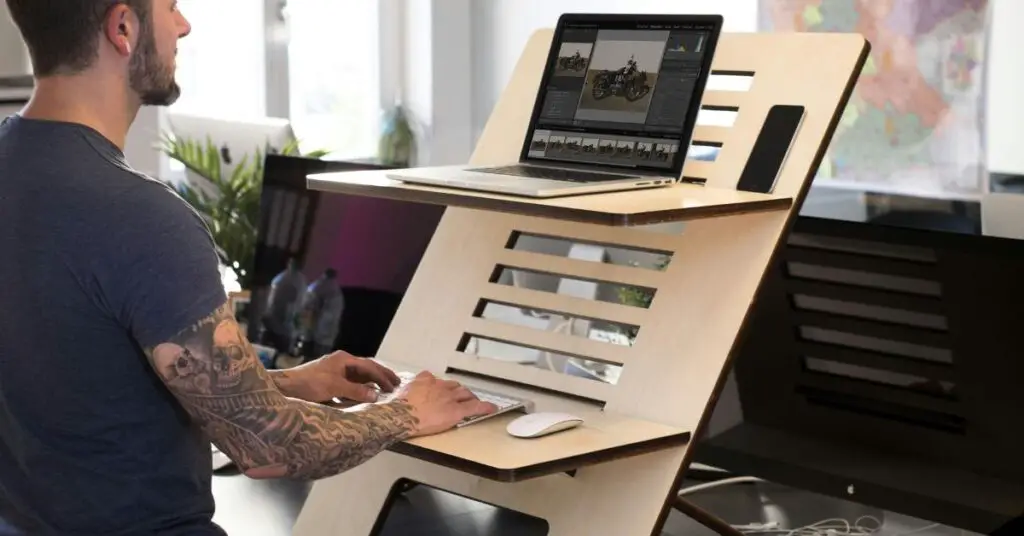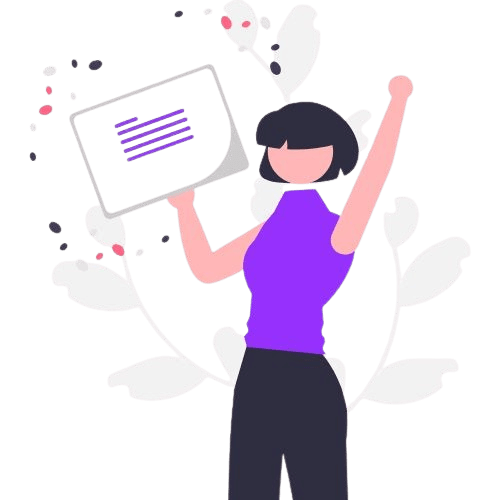Introduction: The Remote Work Revolution: Why Healthy Habits Matter More Than Ever
Remote work has transformed the way we approach our professional lives. As of 2025, over 40% of the global workforce operates remotely, a dramatic shift accelerated by technological advancements and evolving workplace dynamics.
While the flexibility of remote work is celebrated, it has also brought challenges to maintaining healthy habits.
Prolonged hours at a desk and the blurring of work-life boundaries can take a toll on both physical and mental health.
Establishing Healthy Habits for Remote Workers 2025 is no longer a luxury but a necessity for thriving in a home office.
Beyond the Zoom Calls: Creating a Sustainable Workspace for Your Wellbeing
Creating a sustainable and health-centric workspace goes beyond having a functional setup. It’s about fostering an environment that promotes both productivity and well-being.
By prioritizing ergonomics, mindfulness, and nutrition, remote workers can achieve balance and maintain long-term success.
The Importance of Wellness in Remote Work

Why Healthy Desk Habits Matter
Remote work offers flexibility but also comes with health challenges. Long hours in a static position and exposure to screens can lead to fatigue, back pain, and eye strain.
Healthy desk habits, such as maintaining proper posture and taking regular breaks, improve physical health and foster mental clarity, enabling workers to be more productive and satisfied in their roles.
Remote Work Challenges on Health!
Unlike traditional office setups, remote work often blurs the boundaries between professional and personal life. This lack of separation can lead to overworking, sedentary behavior, and neglect of essential wellness practices.
For instance, sitting for extended periods can result in musculoskeletal issues, while prolonged screen exposure may contribute to digital eye strain or headaches. Additionally, the absence of social interaction can impact mental well-being, leading to feelings of isolation and stress.
By addressing these challenges with thoughtful strategies, remote workers can create a healthier, more balanced work environment.
Setting Up an Ergonomic Workspace!

Key Components of an Ergonomic Desk Setup
An ergonomic workspace is the foundation of remote work wellness. A proper setup reduces strain on your body and supports long hours of focused work. Key components include:
- Desk height: Your desk should allow your elbows to rest at a 90-degree angle when typing.
- Monitor position: Keep the screen at eye level, about 20–30 inches from your eyes, to prevent neck strain.
- Keyboard and mouse placement: Place these tools within easy reach to avoid unnecessary stretching.
- Desk organization: Minimize clutter to reduce distractions and improve efficiency.
Choosing the Right Chair for Posture
A supportive chair can make a significant difference in maintaining a healthy posture. Look for features such as:
- Adjustable seat height.
- Lumbar support to maintain the natural curve of your spine.
- Comfortable cushioning and breathable fabric.
Chairs designed for ergonomics provide long-term comfort and prevent issues like back pain, especially during long workdays.
Benefits of Standing Desks & Healthy Habits for Remote Workers 2025!
Standing desks have gained popularity as a tool for combating the health risks of prolonged sitting. Benefits include:
- Increased activity levels: Standing encourages micro-movements, boosting circulation and energy.
- Reduced risk of back pain: Alternating between sitting and standing eases spinal pressure.
- Enhanced productivity: Many users report feeling more alert when using standing desks.
Modern standing desks are adjustable, allowing users to switch seamlessly between sitting and standing positions throughout the day.
Ergonomics for Your Body and Mind

Sitting Pretty (and Staying Healthy): Ergonomics 101 for Remote Workers
Ergonomics plays a crucial role in preventing discomfort and injury while working from home. A well-designed workspace includes:
- Chair selection: Choose a chair with lumbar support, adjustable height, and armrests to promote proper posture.
- Desk setup: Position your monitor at eye level, approximately 20-30 inches from your face, to reduce strain on your neck and eyes.
- Posture tips: Keep your feet flat on the ground, knees at a 90-degree angle, and shoulders relaxed.
The Rise of the Standing Desk: Boosting Energy and Productivity with Movement
Standing desks have gained popularity for their numerous health benefits, including:
- Increased energy levels: Alternating between sitting and standing can prevent fatigue.
- Improved circulation: Standing encourages better blood flow, reducing the risk of cardiovascular issues.
- Reduced back pain: Many users report less discomfort when using standing desks regularly.
Consider investing in adjustable standing desks to incorporate more movement into your day.
Taking a Break (Seriously!): The Power of Movement and Micro-Breaks
Regular breaks are essential for physical and mental well-being. Set a timer to remind yourself to:
- Stretch: Perform simple stretches to reduce tension in your neck, shoulders, and back.
- Move: Take a short walk or engage in light exercises to improve circulation and refresh your mind.
Rest your eyes: Follow the 20-20-20 rule and look away from your screen every 20 minutes at something 20 feet away for 20 seconds.
Healthy Sitting and Posture Practices & Healthy Habits for Remote Workers 2025!

Active Sitting Tips for Better Mobility
Active sitting involves maintaining subtle movements while seated, which helps keep your body engaged. To promote mobility:
- Use an ergonomic chair with a slight recline to reduce spinal pressure.
- Incorporate a stability ball or wobble cushion to encourage core activation.
- Avoid leaning on one side or crossing your legs for long periods.
Maintaining a Neutral Spine
A neutral spine aligns your head, shoulders, and hips in a straight line, reducing stress on your body. Here’s how to achieve it:
- Keep your feet flat on the floor or a footrest.
- Adjust your chair height to ensure your thighs are parallel to the floor.
- Avoid slouching by engaging your core muscles for support.
Preventing Back Pain with Proper Alignment
Poor posture is a leading cause of back pain for remote workers. Simple adjustments can make a big difference:
- Use a lumbar pillow for added lower back support.
- Sit upright with your shoulders relaxed and your ears aligned with your shoulders.
- Take standing breaks every 30–45 minutes to relieve spinal pressure.
Incorporating Movement and Stretching

Desk Exercises for Remote Workers
Staying active while working remotely doesn’t require a gym membership. Desk exercises can be quick, effective, and discreet:
- Chair squats: Stand and sit repeatedly for lower body strength.
- Seated leg lifts: Extend one leg at a time and hold for a few seconds to engage your core.
- Wrist stretches: Rotate and stretch your wrists to prevent repetitive strain injuries.
The Role of Microbreaks in Wellness
Microbreaks are short pauses that help refresh your body and mind. Benefits include:
- Reducing eye strain by looking away from the screen.
- Improving circulation through light stretches or walking.
- Boosting mental clarity and reducing fatigue.
Morning Stretches for Desk Work
Starting your day with a stretching routine sets a positive tone for your workday. Effective stretches include:
- Cat-cow stretch: Loosen your back with this yoga-inspired movement.
- Side stretches: Reach your arm overhead and lean to each side to release tension.
- Neck rolls: Gently roll your head in circles to relieve stiffness.
Reducing Eye Strain and Screen Fatigue

Screen Time Reduction Strategies
Excessive screen time can strain your eyes and mind. Adopt these habits to minimize their impact:
- Follow the 20-20-20 rule: Every 20 minutes, look at something 20 feet away for 20 seconds.
- Adjust screen settings: Use dark mode or reduce brightness to lessen glare.
- Set screen time limits: Use apps or reminders to manage breaks effectively.
Blue Light Blocking Tools
Blue light exposure can disrupt sleep and cause digital fatigue. Equip yourself with:
- Blue light-blocking glasses to filter harmful rays.
- Monitor screen protectors are designed to reduce glare.
- Built-in screen night mode to adjust tones to warmer settings during evening hours.
Eye Strain Relief Exercises
Simple exercises can prevent and alleviate eye strain:
- Palming: Rub your hands together, place them over your eyes, and relax.
- Eye rolls: Slowly roll your eyes in circles to improve flexibility.
- Blinking exercises: Blink frequently to keep your eyes moist and reduce dryness.
Developing a Healthy Work Routine

Creating a Balanced Work-Life Schedule
Balancing professional and personal responsibilities is vital for wellness. Here’s how:
- Set clear boundaries by defining work hours and sticking to them.
- Create a dedicated workspace to mentally separate work from leisure.
- Prioritize tasks with a daily schedule to avoid last-minute stress.
Stress-Free Productivity Hacks
Boosting productivity doesn’t have to be overwhelming. Implement these strategies:
- Break large tasks into smaller, manageable chunks.
- Use productivity apps to stay organized and on track.
- Practice mindfulness to stay focused and reduce stress.
Hydration and Nutrition Tips at the Desk
Your body needs proper fuel to maintain energy throughout the day:
- Keep a water bottle at your desk to stay hydrated.
- Choose healthy snacks like nuts, fruits, or yogurt for quick energy boosts.
- Avoid excessive caffeine, which can lead to crashes later in the day.
Building a Wellness-Focused Workspace

Healthy Workspace Ideas
Creating an environment that supports wellness can make a significant difference in how you feel and work throughout the day. Consider the following:
- Natural lighting: Position your desk near a window to benefit from sunlight, which boosts mood and reduces eye strain.
- Greenery: Add plants to your workspace; they improve air quality and bring a calming vibe.
- Clutter-free zones: Keep your desk organized with storage solutions like trays and drawers to minimize distractions.
Ergonomic Desk Ideas
To maximize comfort and reduce strain, invest in ergonomic tools such as:
- Adjustable monitor stands to customize screen height.
- Keyboard trays to position your wrists in a neutral position.
- Anti-fatigue mats if you use a standing desk.
Desk Organization Tips for Productivity
A tidy workspace can increase focus and efficiency. Here are some tips:
- Categorize essentials (pens, notepads, chargers) and keep them within easy reach.
- Use cable management tools to prevent tangled wires.
- Regularly declutter and clean your desk to maintain a refreshing workspace.
Preventing Desk Fatigue

Active Break Ideas for Remote Workers
Combat desk fatigue by incorporating movement into your daily routine. Try these activities:
- Short walks: Take a quick stroll around your home or outdoors during breaks.
- Stretch sessions: Perform a series of stretches every hour to improve flexibility.
- Mini workouts: Use 5–10 minutes for activities like push-ups, lunges, or jumping jacks.
Comfortable Workstations for Long-Term Health
Designing a workstation that prioritizes comfort is key to staying productive without sacrificing well-being. Tips include:
- Use cushions or armrests to reduce pressure on sensitive areas.
- Ensure your feet are supported with a footrest if needed.
- Experiment with different setups until you find what works best for your body.
Energy-Boosting Habits for Remote Work

Morning Desk Stretches
Begin your day with a series of invigorating stretches to awaken your muscles and mind:
- Seated spinal twist: Sit upright, twist your torso gently to one side, hold for a few breaths, and repeat on the other side.
- Chest opener: Clasp your hands behind your back and lift them slightly while opening your chest.
- Hamstring stretch: Stand and bend forward to reach your toes, keeping your knees slightly bent.
Work-Friendly Snacks to Stay Energized
Healthy snacks keep your energy steady throughout the day. Consider:
- Protein-rich snacks: Nuts, seeds, or boiled eggs for sustained energy.
- Fruits and vegetables: Apples, bananas, carrot sticks, or cucumber slices for a natural energy boost.
- Whole-grain crackers: Pair with hummus or low-fat cheese for a satisfying treat.
Digital Detox Ideas for Mental Clarity
Taking a break from screens can refresh your mind and prevent burnout:
- Schedule “offline” periods during lunch or breaks.
- Engage in hobbies like reading, crafting, or exercising to recharge.
- Avoid screen use at least one hour before bedtime for better sleep quality.
Remote Health Checklist for 2025

Daily Desk Routine for Optimal Health
Follow a structured routine to maintain a balanced and healthy workday:
- Morning setup: Start with stretches and hydration.
- Mid-morning check: Take a quick movement break to reset.
- Lunch break: Step away from your desk and enjoy a nutritious meal.
- Afternoon recharge: Perform light desk exercises or a brief meditation.
- End-of-day wind-down: Reflect on accomplishments and plan for tomorrow.
Office Wellness Tips for a Stress-Free Day
To ensure long-term health and happiness, implement these office wellness strategies:
- Personalize your workspace with items that inspire positivity.
- Maintain good hygiene by cleaning your desk regularly.
- Incorporate calming scents like lavender or eucalyptus to reduce stress.
Conclusion
The Future of Work is Healthy: Embracing Sustainable Practices for Long-Term Success
The shift to remote work is here to stay, making it essential to adopt sustainable and health-focused practices.
By prioritizing ergonomics, mindfulness, nutrition, and technology, remote workers can enhance their productivity and well-being.
Start Your Journey to a Healthier Home Office: Embrace the Change and Thrive!
Take the first step toward a healthier and more fulfilling remote work experience. Implement these tips, create a thriving home office, and embrace the opportunities of the remote work revolution.




